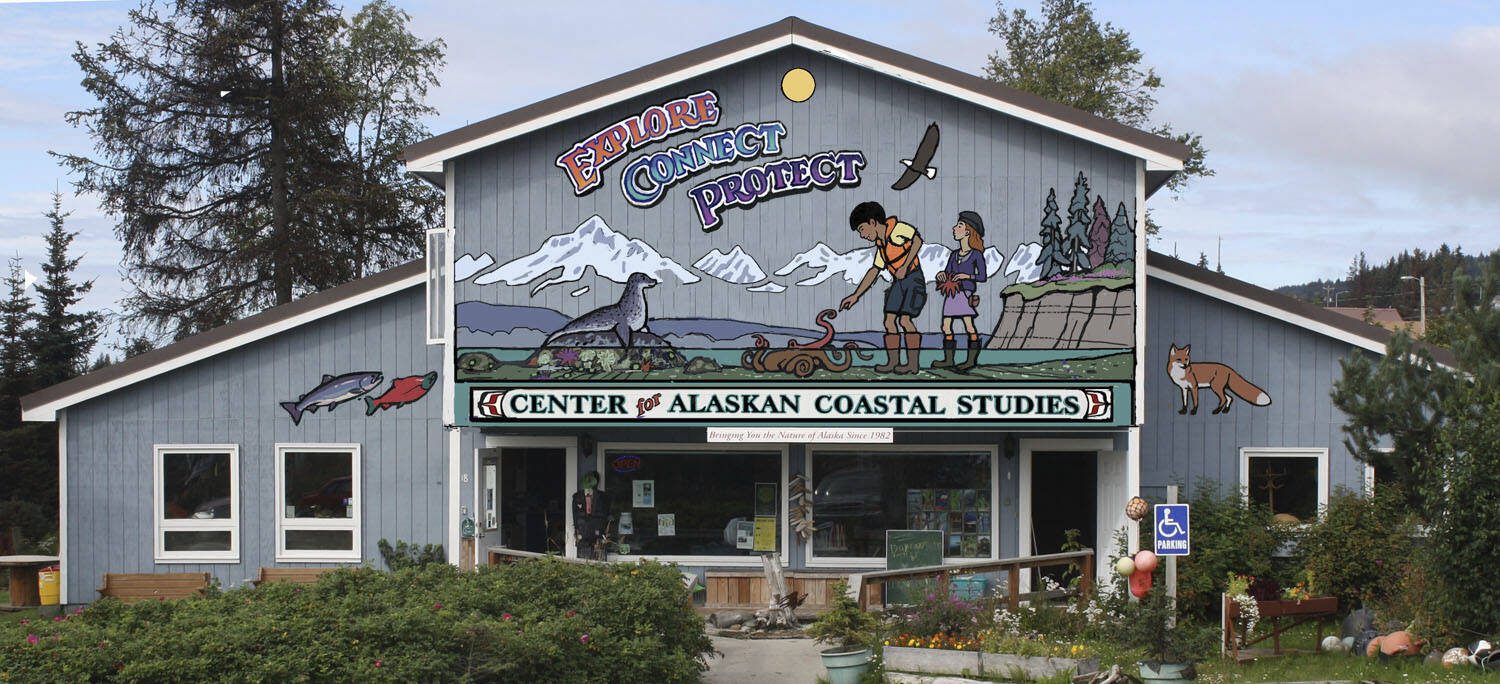Editor’s note: The story of the Center for Alaskan Coastal Studies continues in the latest of a series of stories. This week’s story looks at its fourth decade from 2012-2022.
In 1982, a small group of people dreaming around a kitchen table over pizza began a nonprofit organization. In 1984, Homer’s 4th graders went on a field trip to Peterson Bay. They had a vision but likely could not have imagined the educational opportunities available to their grandchildren 40 years later.
A scary-at-the-time down payment on a half-finished cabin and two acres in Peterson Bay grew to land holdings of nearly 800 acres. Participation in field station programs by 600 people expanded into participation by 11,000-12,000 people of all ages every year at five locations on both sides of Kachemak Bay. Part-time staff grew to 20 seasonal and full-time staff to six. From wondering where the next mortgage payment would come from, the Center for Alaskan Coastal Studies has become a statewide leader in environmental and STEM education, supported by program income, and now embarking on two multi-year, large grants from NOAA and the EVOS Trustee Council with regional tribal and education partners.
CoastWalk continues as an annual tradition to collect hundreds of pounds of marine debris from Kachemak Bay beaches yearly, along with other citizen science and stewardship projects.
Under the leadership of Beth Trowbridge as Executive Director and hard-working staff and Board members, CACS program offerings grew by leaps and bounds in new and refurbished facilities during the fourth decade. The “rustic,” volunteer-finished field station received significant upgrades with the help of the Rasmuson Foundation, Murdock Charitable Trust, and donors. The funky people-powered raft-to-shore system was replaced with a sturdy ramp. The kitchen was expanded to twice its size and modernized.
Wynn Nature Center expanded to 155 acres by Billie Fischer’s donation of NorthWynn, the handcrafted log house built for her father, Carl E. Wynn, and the purchase of the original Bellamy homestead cabin. In 2019 Nina Faust donated the 690-acre Inspiration Ridge Preserve that straddles the end of East Skyline Drive — her legacy, and that of her husband, the late Ed Bailey. Their goal of providing a safe place for sandhill cranes to nest and roost and protect wildlife habitat will be sustained under CACS management, including trails and education programs.
A new visitor center will open next summer after an extensive remodel of the Bellamy cabin/Hume caretaker home. As the “Gateway to the Ridge,” it will be a check-in spot for both Wynn Nature Center and Inspiration Ridge Preserve on East Skyline Drive and a location for additional programming for youth and adults.
The most lasting lessons from my time as the CACS director are the generosity of people in Homer and the talents of naturalists and educators to provide people of all ages with meaningful and fun experiences. Homerites, both year-round and seasonal, did whatever they could “for the kids” and the future of their place. Whether it was to fish for halibut or salmon for a fundraiser, haul tons of gear onto and off of boats and up slippery stairs, cut through beetle-felled trees, pore through budget documents, build cabins, boardwalks, and outhouses, or donate beautiful pieces of art to an auction, so many people said an enthusiastic “yes” again and again.
The accomplishments of this small but dedicated organization are ongoing. The places we continue to steward provide refuges of biodiversity in the Kachemak Bay landscape, seascape, and places where you can immerse yourself in the more-than-human world; on a walk on Wynn Nature Center trails to spy the first spring wildflowers or the leaves turning magenta and red in the fall, on a rubber-soled glimpse into the sea star-eat-bivalve world of the intertidal zone, or in a field full of cranes noisily preparing for migration.
The CACS method of sharing local environmental knowledge is personal, an elaboration of the “Each One Teach One” activity that school groups practiced on Peterson Bay trails to learn about local plants. The positive changes are in the hearts and minds of everyone who has participated in a program or as a staff member, Board member, volunteer, or supporter. CACS demonstrates how learning about nature and connecting to place—this place—can be exciting and fun in lifelong and joyful ways.


